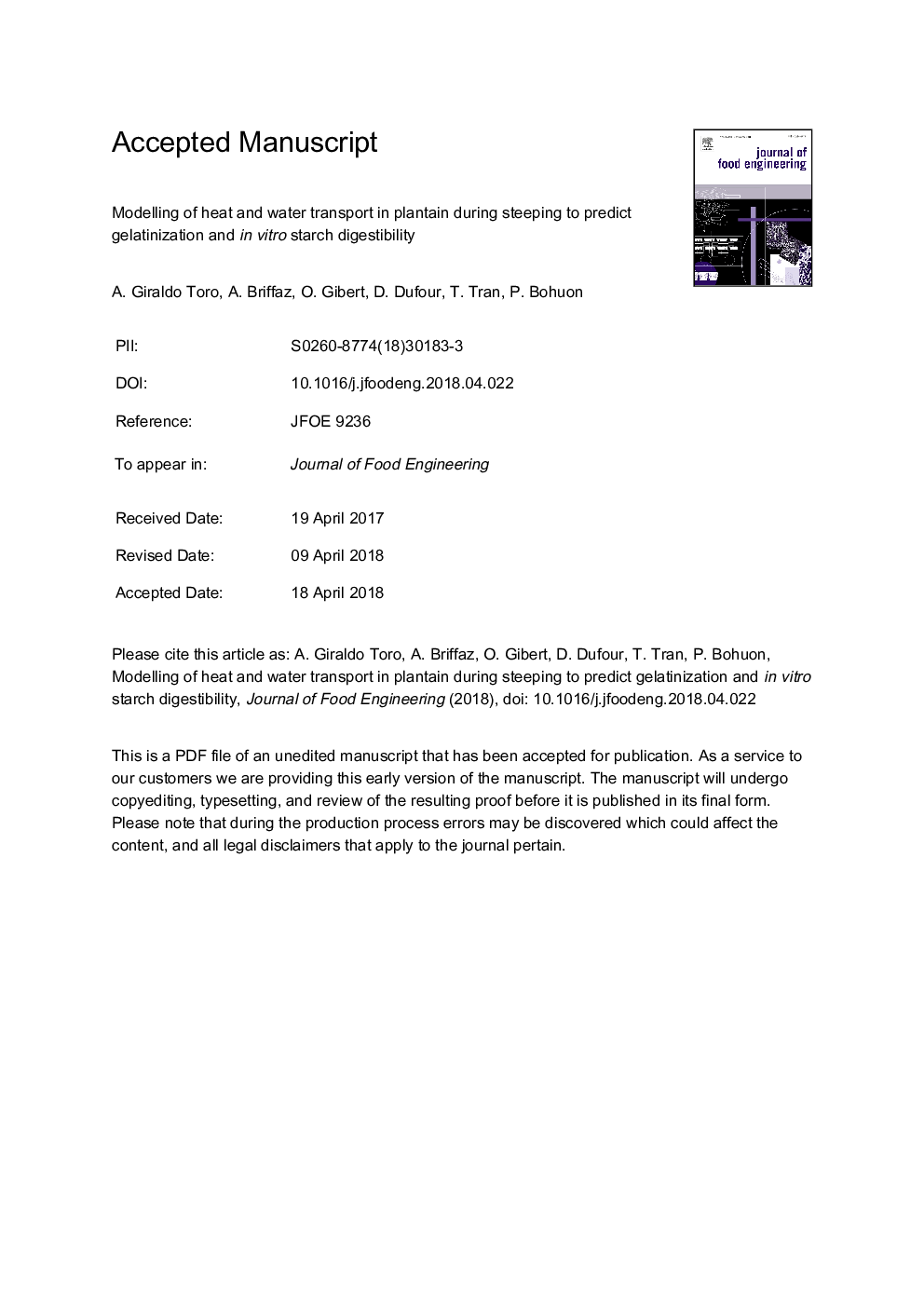| Article ID | Journal | Published Year | Pages | File Type |
|---|---|---|---|---|
| 6664455 | Journal of Food Engineering | 2018 | 34 Pages |
Abstract
A better understanding of starch-process interactions is the key point to better control banana starch digestibility and degree of cooking. This study aims at investigating and modelling the evolution of both the degree of cooking and in vitro digestibility of plantain starch as a function of steeping conditions. A 2D-axial-symmetric model considering a single Harton plantain cylinder being steeped in water was developed and adjusted to experimental data collected at 25, 50, 75 and 100 °C. Experimental temperature distribution was well predicted, with a thermal diffusivity of 1.5 Ã 10â7 m2sâ1. The model was also validated against degree of starch gelatinization kinetics obtained by DSC at 100 °C. Two modes of water transport were found, depending on the starch state. At 25 °C or high degree of starch gelatinization (α â¥Â 0.38), molecular diffusion was observed with an apparent water diffusivity of 2.4 Ã 10â9 m2.sâ1, which may be due to structural cellular effects. At 50 °C, capillary diffusion was observed due to gas desorption, with an apparent water diffusivity of 10 Ã 10â9 m2.sâ1. Starch digestibility was governed by gelatinization process which strongly depends on heat transport. This approach could be used to identify some steeping conditions that modulate both banana starch digestibility and degree of starch gelatinization.
Related Topics
Physical Sciences and Engineering
Chemical Engineering
Chemical Engineering (General)
Authors
A. Giraldo Toro, A. Briffaz, O. Gibert, D. Dufour, T. Tran, P. Bohuon,
